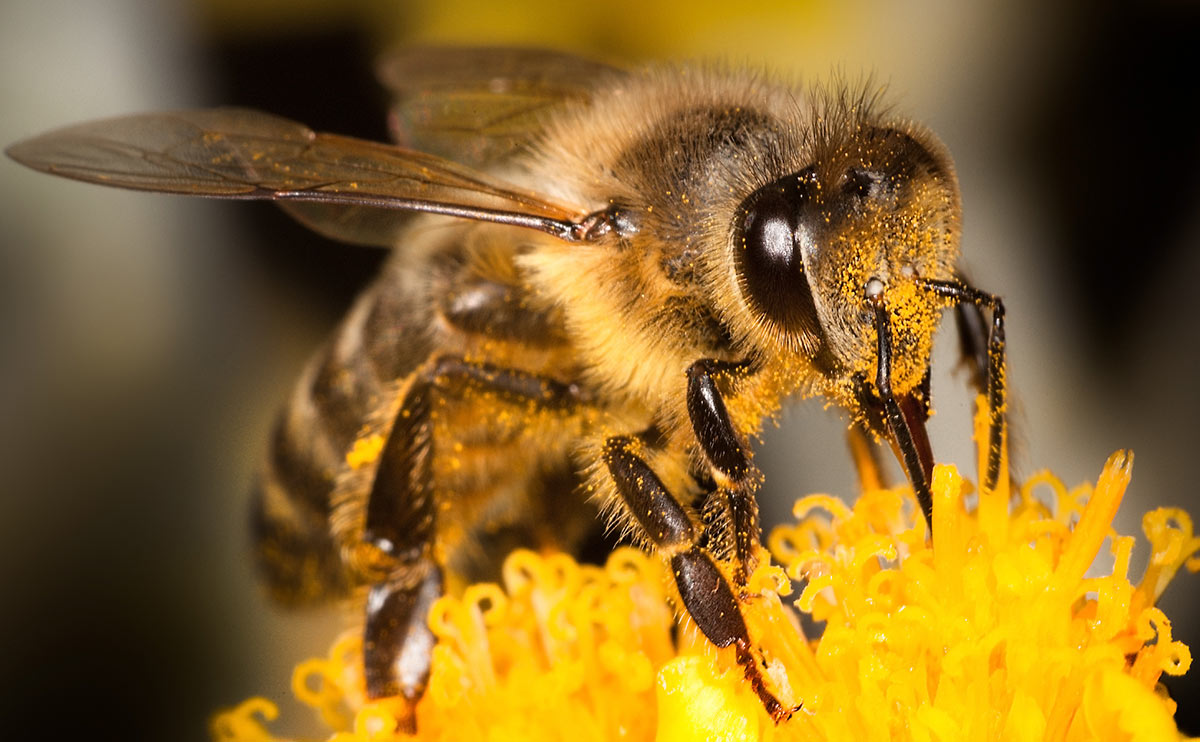Why Bees Are Important

Bees are some of the hardest working creatures on the planet, and because of their laborious work ethic, we owe many thanks to this amazing yet often under-appreciated insect.
Our lives – and the world as a whole – would be a much different place if bees didn’t exist. To illustrate this fact, consider these numbers: bees are responsible for pollinating about one-sixth of the flowering plant species worldwide and approximately 400 different agricultural types of plant.
Honeybees and the other pollinators and the invaluable pollinating services they provide us with helped produce approximately $19 billion worth of agricultural crops in the U.S. alone in 2010; that’s estimated to be one-third of everything we eat! The other animal pollinators such as bats, moths, butterflies, hummingbirds, ants, and beetles contributed to an estimated $10 billion in 2010! To say we rely on the pollination efforts of bees (and other animals) to sustain our modern food system is an understatement.
Let’s take a look at the amazing world of bees and acknowledge all they do for us:
Different Types of Bees
Worldwide, there are around 25,000 different types of bee species (around 4,000 in the U.S.). This huge number is divided into over 4,000 genera of bees, which are then further subdivided into just nine families of bees. The Apidae family is perhaps the most well known family, with familiar members such as the honeybee, carpenter bee, and bumblebee.
All of these species dutifully serve as pollinators of our agricultural world. And they are all excellent at what they do. For example, all bees have stiff hairs and pockets on their legs, allowing them to collect more pollen and be more efficient transporters of it between plants. Not only that, bumblebees appear to be even more successful at pollinating certain crops due to their larger sizes and more vigorous vibrations. This helps to better disperse pollen amongst the flowers and fruits it visits.
Pollination – How it Works & Why it’s Important
What is pollination? Simply put, it is the transfer of pollen from the male part of the flower, the anther, to the stigma, which is the female part of the flower. Upon the two’s meeting, a plant’s seed, nut, or fruit is then formed.
Some plants rely on animals to assist with their pollination process, while others can pollinate themselves or rely on the wind to do it for them.
Bees also tend to focus their energies on one species of plant at a time. By visiting the same flowers of a particular species in one outing, much higher quality pollination occurs – rather than spreading many different pollens to different plants which are not being pollinated, all plants of one species are getting an even distribution of vital pollen from others of its same species.
Pollination is essentially plant reproduction. Without help from animal pollinators, our everyday food supply would look much different – at least one-third of our staples we’ve come to rely on would no longer be available.
Bees Provide Sources of Food
A few examples of the foods that would no longer be available to us if bees ceased pollinating our agricultural goods are: broccoli, asparagus, cantaloupes, cucumbers, pumpkins, blueberries, watermelons, almonds, apples, cranberries, and cherries.
Honey is a food product created by bees and is not to be forgotten. Made by bees regurgitating nectar and passing it back and forth in their mouths to one another before depositing and sealing it in a honeycomb, its intended use is for the bees’ winter food stores. Humans are quite fond of this amber liquid as well – the 2013 honey crop was valued at $317.1 million.
Bees Beautify the Planet
Pollinating flowers and contributing to the beautification of the planet’s floral landscapes may be the bees’ perhaps simplest and least economically important actions, but it’s certainly its most aesthetically pleasing one.
By keeping flowers pollinated, bees perpetuate floral growth and provide attractive habitats for other animals such as insects and birds.
Bees are easily amongst the most important insects to humans on Earth. These humble, buzzing bugs deserve a huge thanks – for helping provide us with our favorite fruits and vegetables, their delicious honey, and beautiful, flowery gardens!
Hi! I am a robot. I just upvoted you! I found similar content that readers might be interested in:
https://steemit.com/blog/@ceblaz/why-are-bees-very-important-for-our-planet